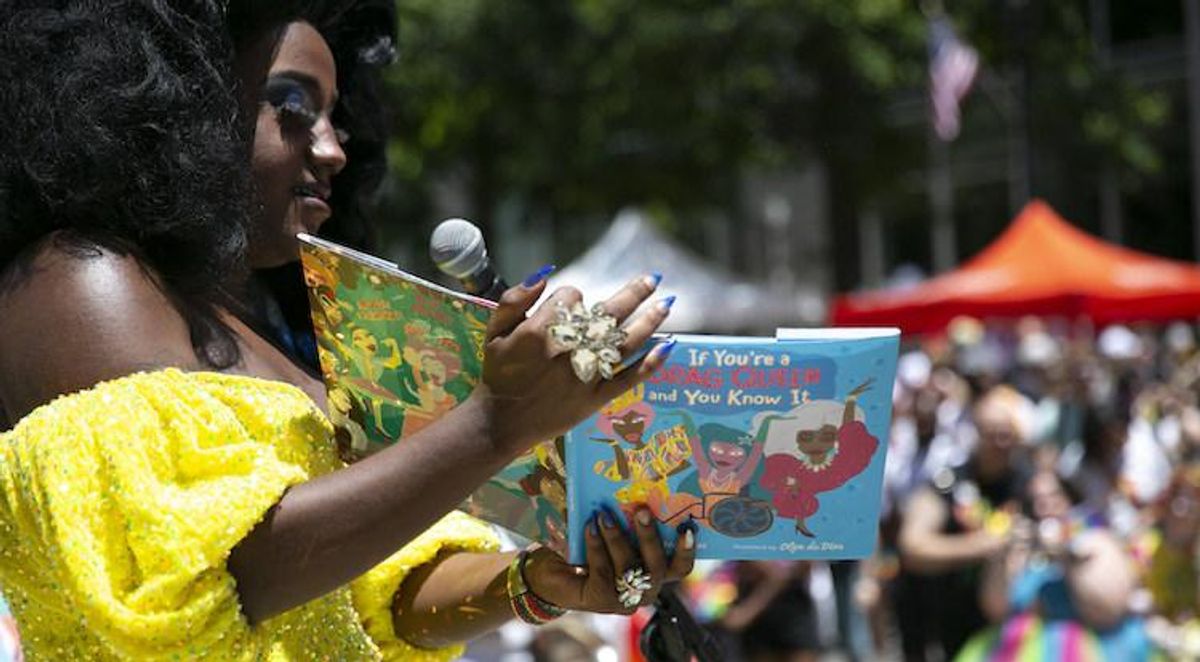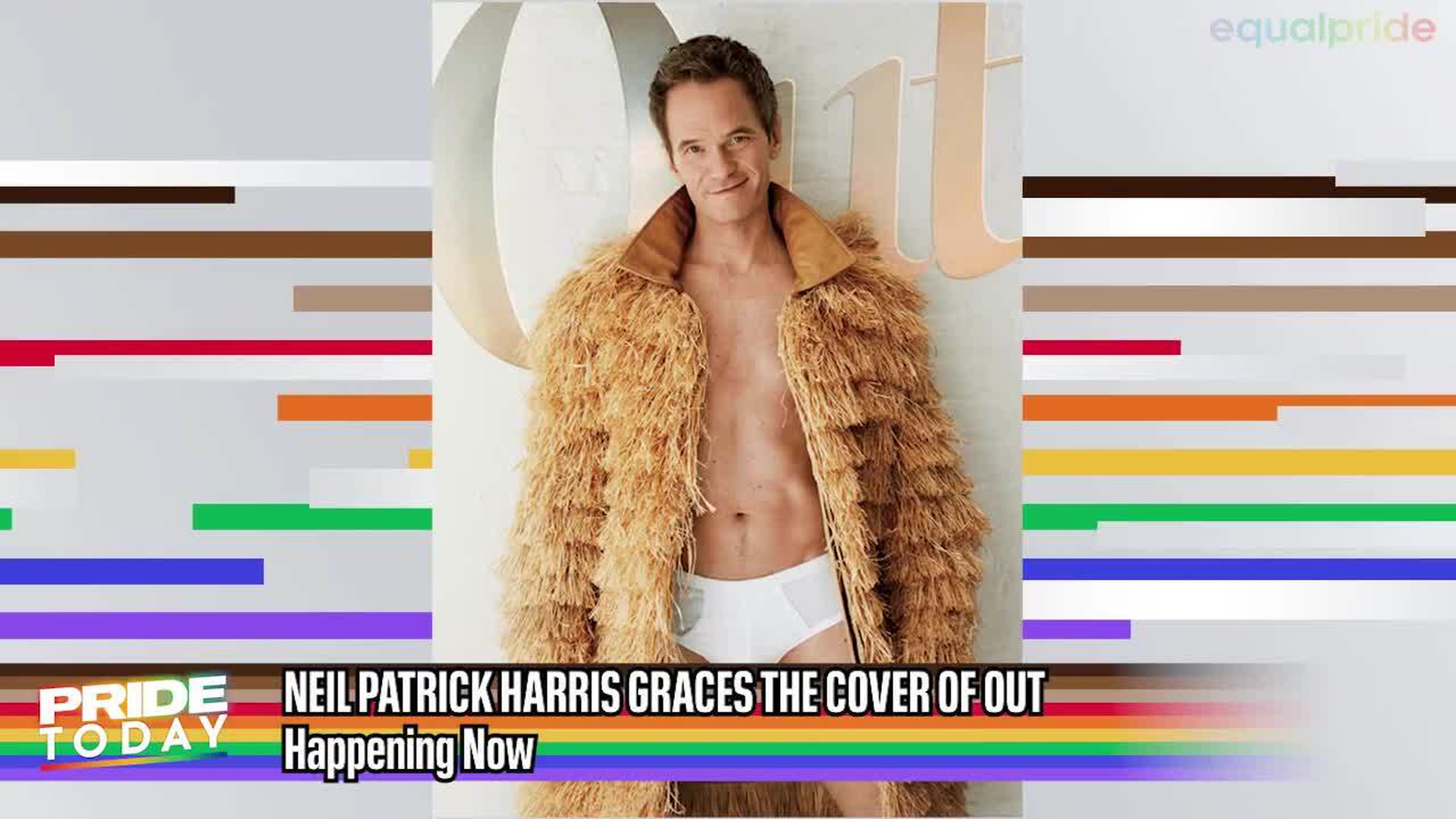Views expressed in The Advocate's opinion articles are those of the writers and do not necessarily represent the views of The Advocate or our parent company, Equal Pride.
Once upon a time, a group of drag queens went throughout the land sharing stories of hope and inclusion to children and their families. Many people loved the drag queens and the stories. But some villains who thought drag queens should not exist started threatening the drag queens, the families who chose to come to hear the stories, and even the people who ran the venues where the stories were told. The villains also called on others to hate the drag queens and encouraged them to show up and disrupt the story times, sometimes even with violence. The villains thought the drag queens would go away, but instead, the drag queens realized that they were strong and even stronger with their friends by their side. Together they stood up to the villains. They were not going to let threats or fear stop them from spreading love to the world.
This is not a modern fairy tale, but the real story of Drag Queen Story Hour and how the organization is using elements of community-led safety to deal with the real and present danger they face from white supremacist and hate groups. And while their story does not yet have a final happy ending, they are an important example of how LGBTQ+ communities are using community-led safety to build new models for responding to and preventing harm.
With its mission to "celebrate reading through the glamorous art of drag," Drag Queen Story Hour was founded in 2015 and has grown to become a global sensation. DQSH's approach to promoting reading resonates with children and their families through its intrinsic message of self-love, the celebration of diversity, and the need to "stand up for what they believe in and each other."
As DQSH has grown in popularity -- with chapters in nearly 30 states and half a dozen countries -- the storytellers have become the story, as their events have increasingly been targeted for harassment by white supremacist groups which have orchestrated disruptions of DQSH events at several libraries and public celebrations around the country.
Fortunately, the organization is not about to back down. DQSH is determined to continue spreading its message and is also committed to ensuring a safe environment for its storytellers as well as for the children, parents, and community partners that make its events possible.
Seeing the beginning wave of attacks against DQSH in early June of this year, the organization I lead, the New York City Anti-Violence Project, reached out to offer support. We knew these attacks were not new and were likely to continue and possibly escalate.
Follow LGBTQ+ News on Pride Today Below.
AVP first documented the far right's actions against DQSH in 2019. In our report "Pride and Pain: A Snapshot of Anti-LGBTQ Hate and Violence During Pride Season 2019" we explained that these "coordinated actions against the LGBTQ community were organized and carried out by known white supremacist and anti-LGBTQ hate groups" and "aimed at intimidating the community specifically during Pride season."
In the report, we summarized 22 protests at Pride activities that year, 18 of which were part of an ongoing campaign to shut down Drag Queen Story Hours across the country. Some of the protests in 2019 had become violent, so when we began seeing new reports this year in Texas, North Carolina, and California, we knew it was time to take action. In partnership with AVP, DQSH is now working to adopt a community-led safety approach for its storytelling events.
"We're doing an organization-wide training with [AVP] to help us have more protocol and procedures when it comes to safety measures," said Jonathan Hamilton, the executive director of DQSH, in an interview with Rolling Stone. "We want all of our families to have a fun time and our events to be a safe and secure experience." Hamilton also said that attacks on drag culture are just the flavor of the moment when it comes to the right wing's anti-LGBTQ+ goals. "It's transphobia and homophobia when you're hating on drag culture, because it's part of our community," he said.
LGBTQ+ people are unfortunately no stranger to harassment and discrimination. This has led us to learn how to assess what we and our allies need to be safe and how to work together to keep each other safe. Community-led safety does not mean that when members of the Proud Boys, a white nationalist hate group, burst into a California library, as happened last month, and shout homophobic and transphobic slurs, elected officials and the criminal legal system should sit on their hands and not publicly condemn and forthrightly respond to these bigoted acts. Rather, community-led safety means working in advance to minimize threats through preparation and harm reduction.
It also acknowledges that often law enforcement does not step in to protect our community and sometimes causes more harm. Last week, theThe Advocate reported on a protest at a DQSH event at a library in Sparks, Nev. During the protest, a man with an loaded rifle interrupted the event. After police officers arrived on the scene, they determined the gunman held the weapon lawfully and did not threaten anyone. Later, a Sparks police spokesperson explained in a written statement, "Just as citizens have the constitutional right to peacefully demonstrate within the confines of the law, so does a person have the right to open carry in the State of Nevada."
Audacia Ray, AVP's director of community organizing and public advocacy, was also interviewed for Rolling Stone and explained our organization's de-escalation strategies and community-led model that relies on neighborhood ties. "Safety comes from relationships. It comes from building relationships with your neighbors, with other groups in your community that might not be drag queens but might be folks who are concerned about kids having access to information, people who care about libraries, people who care about public spaces. That's also how we start to build understanding across many different identities. Different members of the community getting to know each other -- meeting a drag queen, having a conversation," Ray said.
AVP has developed upstander and de-escalation trainings born out of years of LGBTQ+ community members having to look out for ourselves and our community in the face of harassment and outright violence. For many of the most vulnerable in our community, involving law enforcement in a situation is itself a risk since LGBTQ+ people -- especially trans and gender-nonconforming and nonbinary and people of color who are members of our community -- are often themselves the target of discrimination by law enforcement.
During Pride Month in June, we celebrated the resilience of the individuals who were the heroes of the 1969 Stonewall rebellion against institutional discrimination and persecution. The members of DQSH recognize that we are safer when our community works together. Through community-led safety partnerships, we can learn from one another, guide one another on the best practices to prepare for possible threats, and be ready to stand up for one another quickly.
DQSH embodies the values most parents want to instill in their children -- values woven into the much loved and award-winning children's stories shared at DQSH: stories that encourage inclusion and the appreciation of the beautiful diversity that abounds in our world. DQSH has become such a success because it helps introduce children to the idea that we have so much more to gain when we embrace and celebrate what makes each of us unique.
That is why AVP has joined with DQSH to write a new chapter of community-led safety, one that continues to empower DQSH to assess and implement what its community needs to be safe and can also serve as a model for other community partnerships.
Collectively, we must work to define and build models of safety that uplift our communities by driving policy change rooted in the needs of the most vulnerable. These efforts are not only important during Pride Month, but also throughout the year. Building community is one way we help organizations like DQSH and all LGBTQ+ people stay safe. Our partnership with DQSH is exactly the kind of coalition-building our community-led safety campaign can achieve as we expand what safety looks like and sustain new ways of protecting our communities.
Beverly Tillery is the executive director of the New York City Anti-Violence Project, an organization that works to address and end all forms of violence through organizing and education and supports survivors through counseling and advocacy. She is an experienced thought leader, advocate, and national organizer with nearly three decades of experience working in social justice movements.
AVP runs a 24-hour bilingual (English/Spanish) hotline for LGBTQ and HIV-affected survivors of violence. If you want to safely report an incident of violence or need support, call or text (212) 714-1141. We are here for you, whenever and wherever.















































































